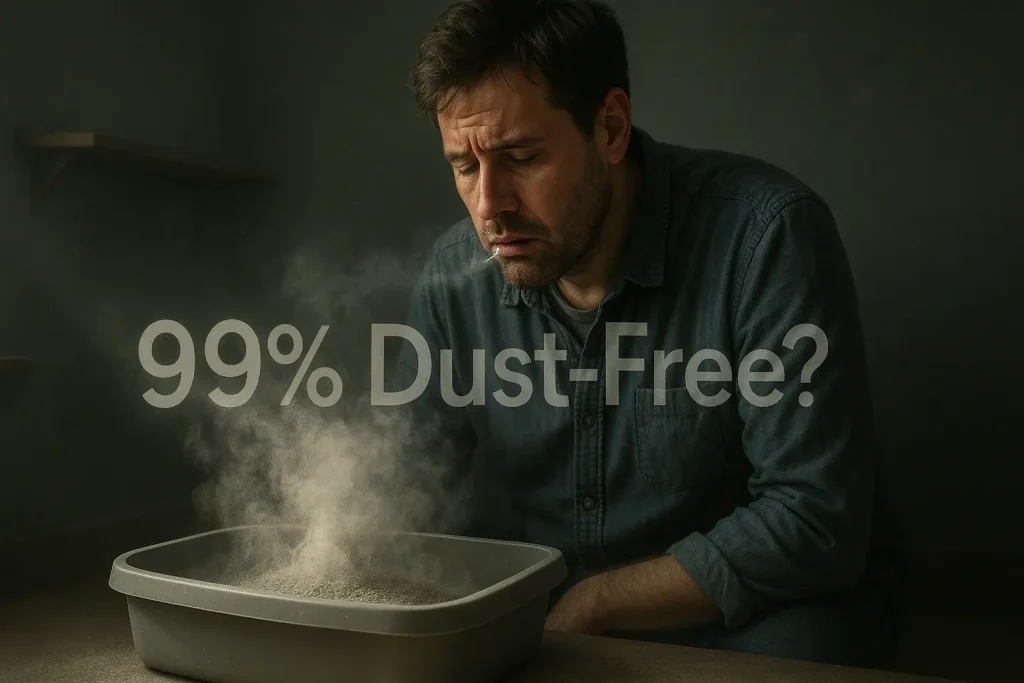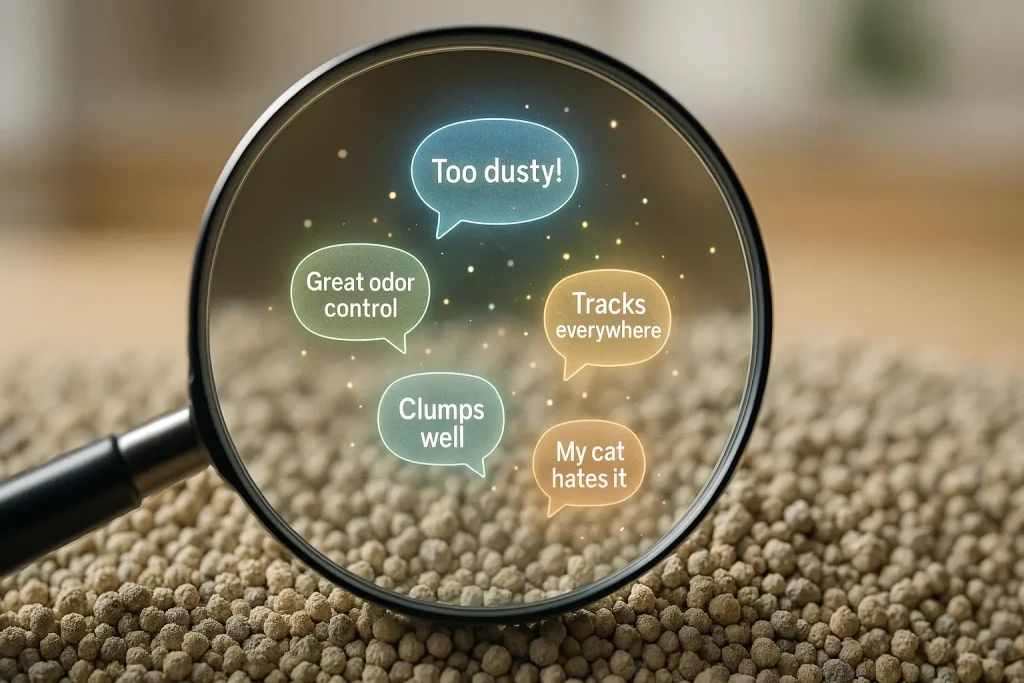Why Peeking into Your Cat's Litter Psyche is a Game-Changer
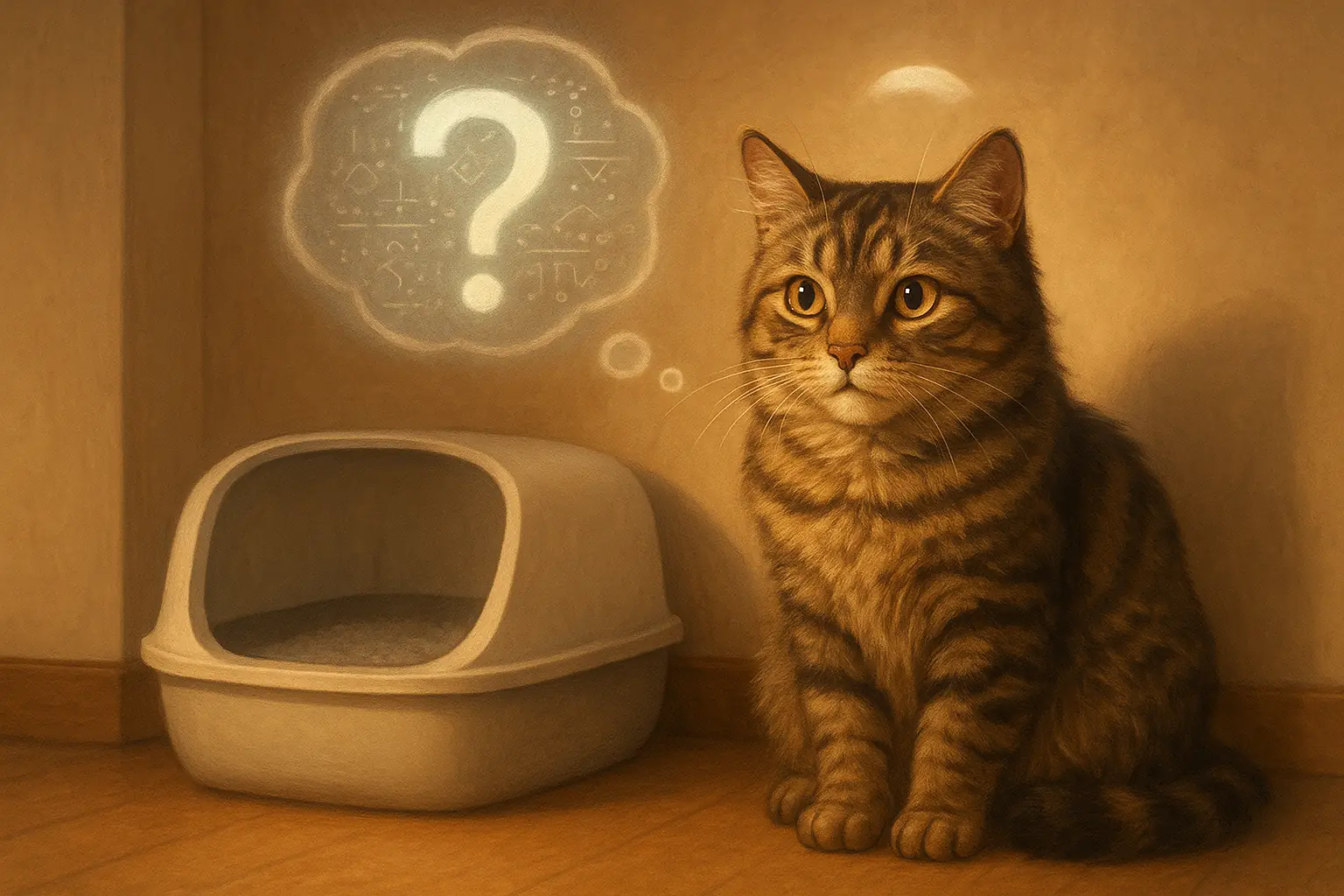
Ever feel your cat's litter box habits are a complete puzzle? One day perfect. The next? Not so much. This isn't just random feline caprice; it's feline psychology dictating those choices. Many cat owners share this frustration, trying to decode baffling behaviors around the litter box.
Cat Litter Hub deciphers these litter box mysteries for you. We meticulously analyze thousands of real owner experiences shared online—the good, the bad, the truly perplexing. This deep dive into user-generated content uncovers distinct patterns. These patterns reveal what cats genuinely prefer, or intensely dislike, about their litter and toilet setup.
This understanding of your cat's perspective transforms frustrating guesswork. You gain actionable insights to solve persistent litter box problems effectively. Our analysis of countless owner stories empowers you to make informed litter choices. The result? A happier cat and a consistently cleaner home, fostering a better relationship with your feline companion.
The real game-changer isn't a magical new litter. It is this new depth of understanding. Peeking into your cat's litter psyche, guided by the collective wisdom of fellow owners, offers genuine solutions. Cats have opinions. We help you hear them.
Interactive: What's Your Cat REALLY Saying About Their Litter Box?
Litter Box Behavior Decoder
Your quiz results offer initial clues. These insights reflect patterns seen across thousands of owner reports. They decode common feline messages. The linked articles provide deeper analysis for each specific behavior. Explore them for comprehensive solutions.
Every cat is an individual. Our Cat Behavior Decoder synthesizes patterns from thousands of user observations. It suggests common reasons. Your cat's specific context might hold additional factors. Consider these community-sourced ideas.
A critical step remains. Sudden or persistent litter box changes frequently indicate potential health problems. Cats hide illness well. Always consult your veterinarian to rule out medical causes first. Their expertise is invaluable.
Top 5 Reasons Your Cat Might Be Avoiding the Litter Box (User Case Files)
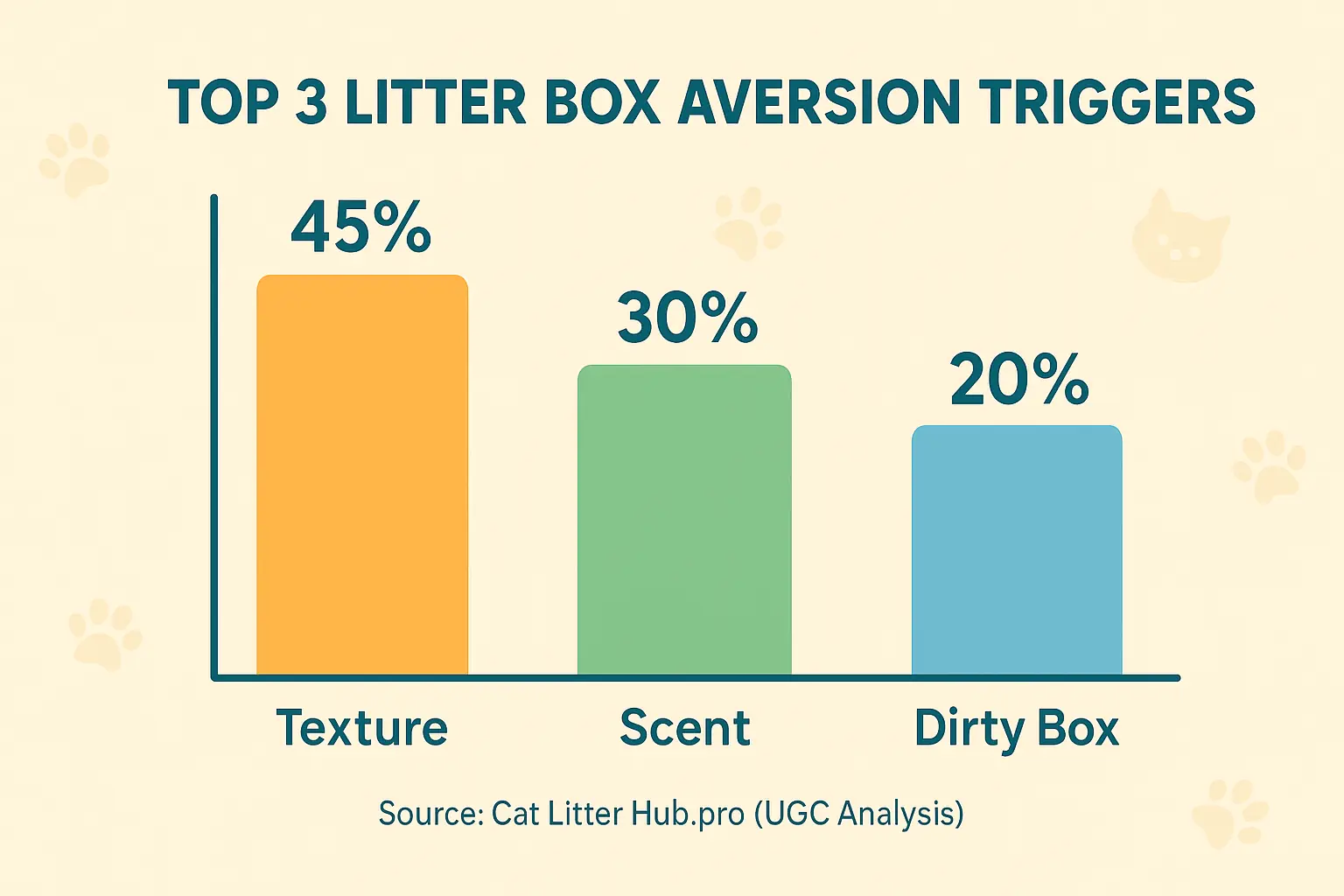
Our deep dive into countless user case files cracks open the mystery of litter box avoidance. The number one culprit? Unsuitable litter texture. Imagine your cat, Princess Whiskers, tentatively stepping onto sharp, large-grain crystals. She recoils, shakes a paw, and makes a dash for your favorite rug. This scenario plays out in numerous owner accounts. Cats' paws are sensitive; what feels wrong underfoot gets rejected fast. Dig into feline texture preferences with our Texture Tell-All guide.
Next on the feline hit list: overpowering scents. That "fresh lavender" or "mountain spring" perfume you find pleasant? Your cat likely finds it offensive. A clear pattern emerges from user experiences: heavily scented litters often send cats searching for a less aromatic spot. One owner shared how their cat, Mittens, consistently snubbed a new floral-scented litter, only returning when they switched back to unscented. Cats possess incredibly sensitive noses; artificial fragrances are a common aversion trigger. Our Scent Sensitivity Sniff Test findings explore this further.
A dirty litter box. Obvious, right? Yet, user reports confirm it’s a leading reason for out-of-box incidents. Think about it from your cat's perspective: would you want to use an overflowing, smelly toilet? Max the tabby certainly wouldn't, according to his owner, who found "protest puddles" whenever scooping was delayed. The consensus from owner reviews is undeniable. Daily scooping isn't just a suggestion; for many cats, it's a demand. Neglect this, and you're practically inviting trouble.
Sudden changes in litter box habits can also scream "medical issue!" One day your cat, Leo, is a model of perfect potty behavior. The next, he’s avoiding the box like it’s cursed. Our investigation into thousands of owner reports frequently links such abrupt shifts to underlying health problems, like painful urinary tract infections. The cat associates the box with discomfort. Before trying anything else, a vet check is paramount. Many users emphasize this crucial first step.
Finally, environmental stress sends many cats off-course. Did a new dog join the family? Have you recently moved? Perhaps loud construction started next door? These disruptions can unsettle even the most stoic feline. User case files reveal that cats, like Shadow whose owner reported issues after a new baby arrived, often express anxiety through inappropriate elimination. They might be seeking a safer, quieter place or marking territory. Understanding these sudden aversion clues helps restore peace.
The Paw-Ful Truth: What Litter Textures Do Cats Genuinely Love or Loathe?
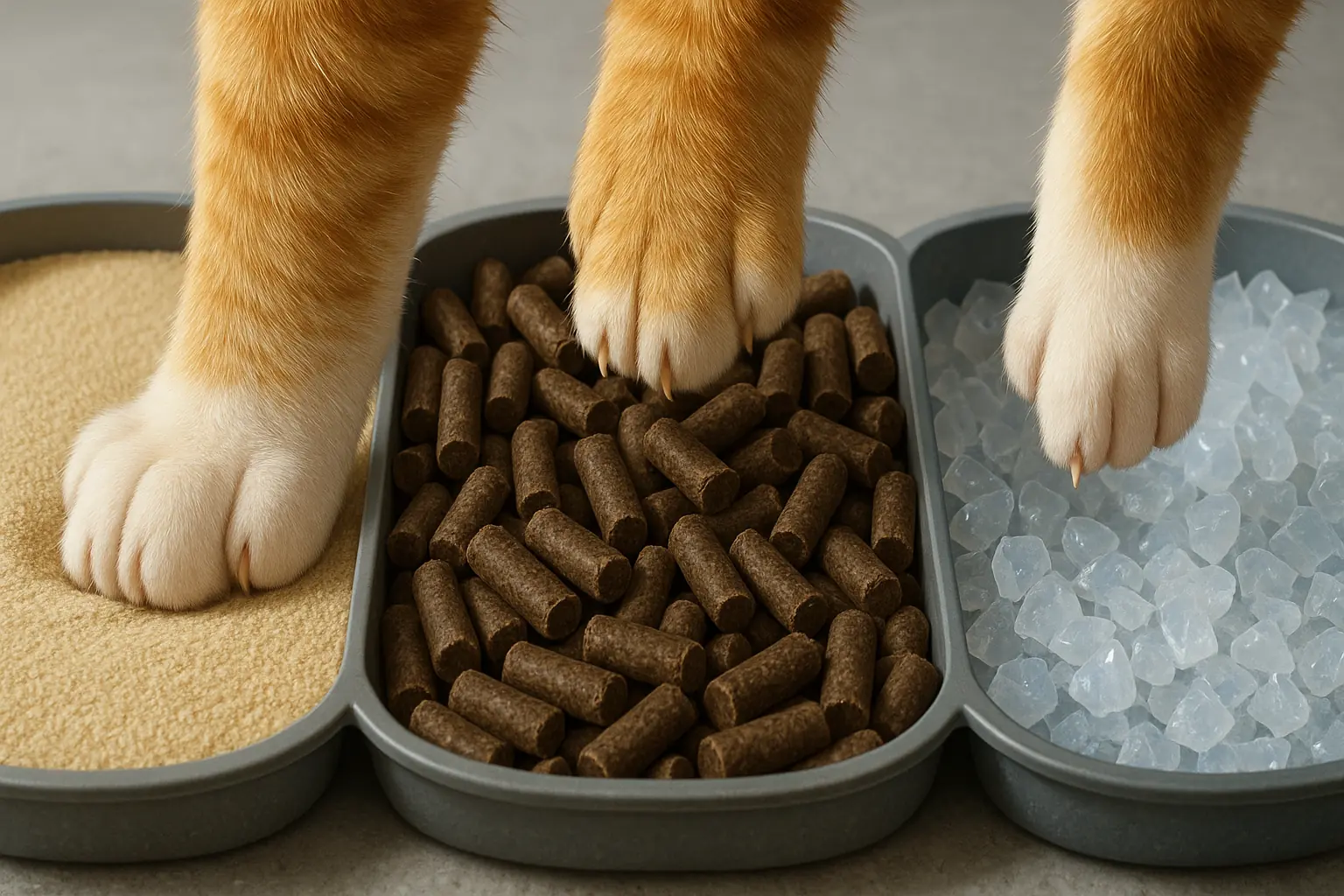
Ever wondered if your cat is a 'princess and the pea' regarding litter texture? Litter texture preferences strongly influence feline bathroom habits. Our analysis of thousands of owner experiences reveals a clear pattern. Most cats choose fine-grained, sand-like litters. This texture closely mimics their natural, ancestral toileting substrate for digging.
What about other textures? Large pellets, including wood or paper, frequently receive a negative feline reaction. Owners often describe cats hesitating or completely rejecting boxes filled with these coarser options. Sharp silica gel crystals also draw considerable complaints about paw discomfort from some cat households. The wrong feel can be a big deal.
Declawed cats present a special consideration. Their paws are exceptionally sensitive. User feedback overwhelmingly shows these cats need the softest litter available. Many owners of declawed cats share stories of coarse litters being a non-starter, with cats clearly favoring ultra-soft options like fine paper crumbles or certain corn-based litters. Even cats with claws can be surprisingly particular about what’s underfoot.
So, how can you decipher your cat's preference? Watch their litter box behavior closely. Hesitation before entering the box is a common clue. Frantic paw-shaking after exiting can also indicate dislike for the litter's feel. Ultimately, your cat's actions, as echoed in countless user stories we've analyzed, provide the truest insights into their comfort and texture choices.
The Feline Sniff Test: Why 'Pleasant' Litter Scents Can Be a Cat's Nightmare
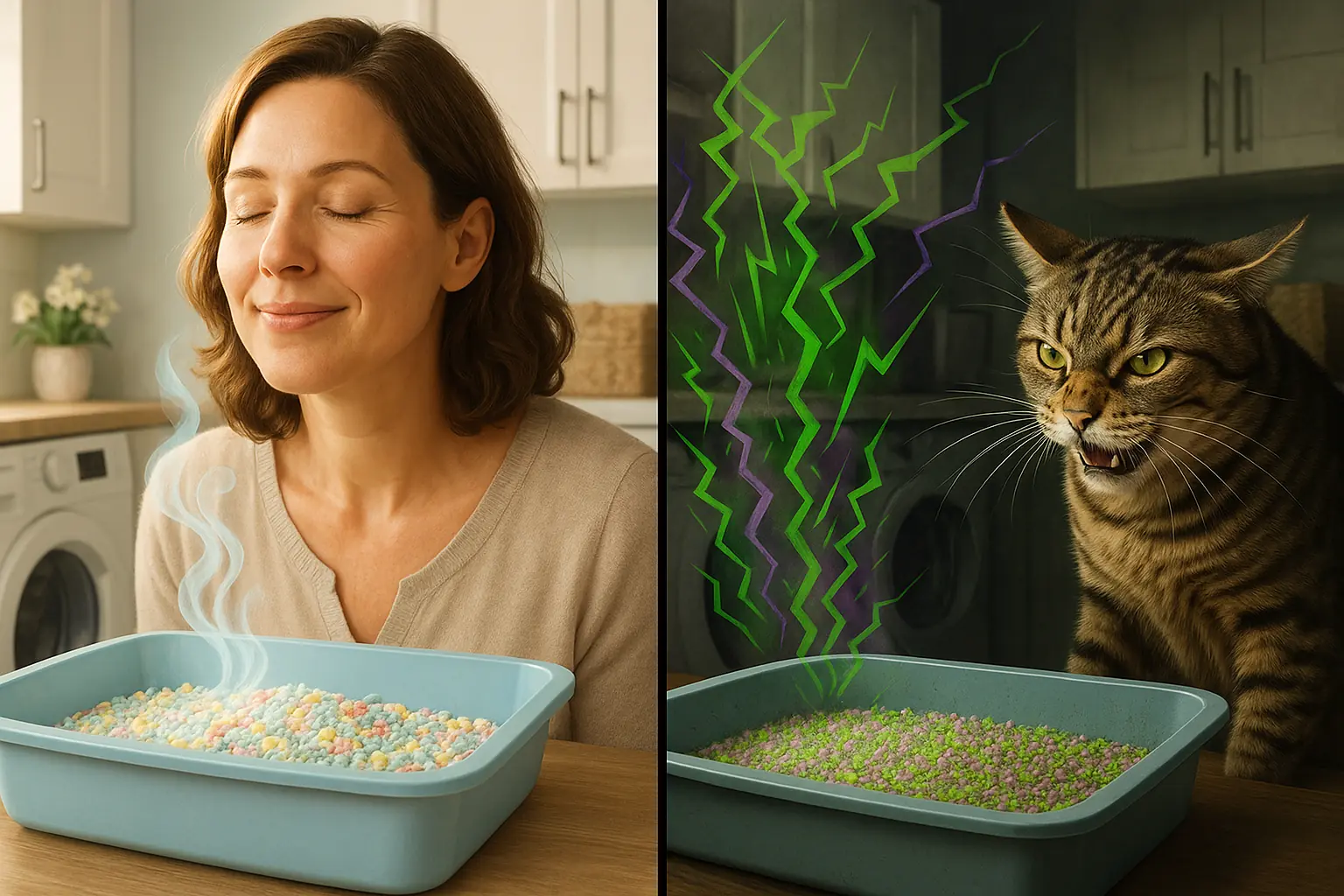
That 'fresh linen' aroma in your cat litter? Your cat might interpret it as 'chemical assault!' Cats possess an astonishingly keen sense of smell. Their olfactory system far surpasses human capacity significantly. This means scents barely perceptible to us can be intensely overpowering to your feline friend. It’s a biological fact often overlooked by well-meaning owners.
Many artificial perfumes in litters are simply too much for cats. This is not speculation; it is a consistent finding from analyzing thousands of owner experiences. Users frequently describe cats suddenly avoiding litter boxes after a switch to scented varieties. The message from these felines, as reported through their behavior, is unmistakable: that new smell is offensive, possibly even threatening.
What does this mean for your litter choice? The collective wisdom from cat owner communities points overwhelmingly towards unscented options. Countless user reports link unscented litters to higher acceptance rates and fewer out-of-box incidents. Fewer 'mystery' potty problems arise. The takeaway from extensive user feedback analysis? What smells 'fresh and clean' to a human nose can translate to 'danger zone' for a cat’s sensitive system.
This feline aversion to strong scents is not mere pickiness. Think about it from their perspective. Powerful artificial odors can obliterate the subtle, natural scent markers cats rely on for security and communication within their perceived territory. A heavily perfumed litter box might not feel like a safe, personal latrine to them. Our deep dive into user feedback confirms this: cats often prefer their bathroom to smell like... well, nothing much at all, ensuring it feels like their own undisturbed space.
Digging to China: Understanding Your Cat's Litter Excavation Rituals
Does your cat treat the litter box like an archaeological dig site? Many owners share this exact experience. This energetic excavation is pure cat instinct. They dig. They bury. It is what felines do, deeply programmed to cover their waste and, as some theories suggest, scent mark territory.
The type of litter profoundly influences this digging drama. Countless user experiences confirm this observation. Lighter, finer litters often fly much further during those enthusiastic digging sessions. Heavier clay or dense pellets? These generally stay put better, a frequent report from cat parents seeking less mess. The challenge is satisfying their instinct without redecorating your utility room floor.
Then you have the "super-diggers." These felines excavate with astonishing determination. For these champions of digging, online cat communities frequently recommend high-sided litter boxes. Some owners even find success with top-entry designs. These specific box choices significantly reduce collateral scatter, according to many user testimonials. It becomes about smart containment, not impossible correction.
Understanding this powerful digging drive is essential. Cat Litter Hub's analysis of extensive user feedback shows owners find more household harmony by accommodating the behavior. Trying to stop a cat from digging often proves frustrating for both cat and owner. Better litter and box choices offer practical, effective solutions, simplifying life for everyone involved.
Litter Box Feng Shui: User-Approved Placement for Feline Harmony
Think your cat doesn't care where the toilet is? Think again. Litter box placement is genuine cat Feng Shui. User experiences overwhelmingly confirm this crucial detail. Cats deeply prefer private, quiet, and easily accessible locations for their litter boxes. This simple consideration prevents many common litter-related headaches.
Many cat owners, through trial and error, discover that certain spots are absolute no-gos. Placing litter boxes near food or water bowls is a frequent mistake highlighted in countless reviews. Cats instinctively avoid eliminating where they eat. High-traffic, noisy areas also cause significant feline stress, often leading directly to litter box avoidance. Accessibility remains vital; ensure kittens and senior cats can easily enter and exit.
For multi-cat households, a specific strategy emerges from collective user wisdom. The 'N+1' rule is widely endorsed: one litter box per cat, plus one extra. This simple guideline, shared across numerous cat owner forums, helps prevent resource guarding and significantly reduces inter-cat tension. Users consistently report this approach promotes household peace and consistent box usage.
Ultimately, successful litter box placement involves seeing the space from your cat's perspective. Does the location feel safe? Is there an escape route? Many cats prefer a corner, offering a view of the room while providing some cover. Our analysis of user feedback shows thoughtful placement, guided by feline psychology, solves many anxieties and promotes harmonious living.
Listen to Your Cat: Final Thoughts on Litter Box Harmony
User-generated wisdom offers you powerful starting points. Thousands of owner experiences light the path. But your own cat? They write the final chapter. Observing your cat's unique signals provides the deepest insights for their litter box success. This personal connection helps you turn collective data into tailored solutions for your home.
Patience is your indispensable ally on this journey. Consider yourself a litter box detective for your feline friend. Often, an adjustment, guided by your cat's reaction, makes a big difference. Is your cat avoiding the box? Are they digging frantically? These are clues. Your cat is communicating their needs.
The ultimate goal remains simple: a happy cat, a clean home. Achieving this litter box harmony can transform your relationship with your pet. You become their advocate, their problem-solver, their litter box whisperer. Community insights combined with your observation unlock that peaceful coexistence.
Related Insight: The Pica Puzzle: Why Some Cats Eat Litter & What Worries Users Most
Cats sometimes eat litter. This behavior, pica, deeply worries conscientious cat owners. Our analysis of user feedback shows widespread concern about potential health issues.
What drives this behavior? Cat Litter Hub is synthesizing community experiences regarding litter ingestion. We will soon present findings on the pica puzzle and its user-reported impact.
Related Insight: Sudden Litter Box Aversion: User Detective Work to Uncover Hidden Triggers
Your cat suddenly boycotts the litter box. Frustrating. Many cat owners report this sudden shift. The real reasons often stay hidden. For these sudden changes, playing detective becomes crucial. Cat Litter Hub is analyzing extensive user feedback on this exact problem.
Soon, we'll explore how to uncover those hidden triggers for sudden litter box aversion. Our future guide details common aversion clues from countless owner stories. You'll learn practical steps for solving sudden box problems, all drawn from real user experiences.



